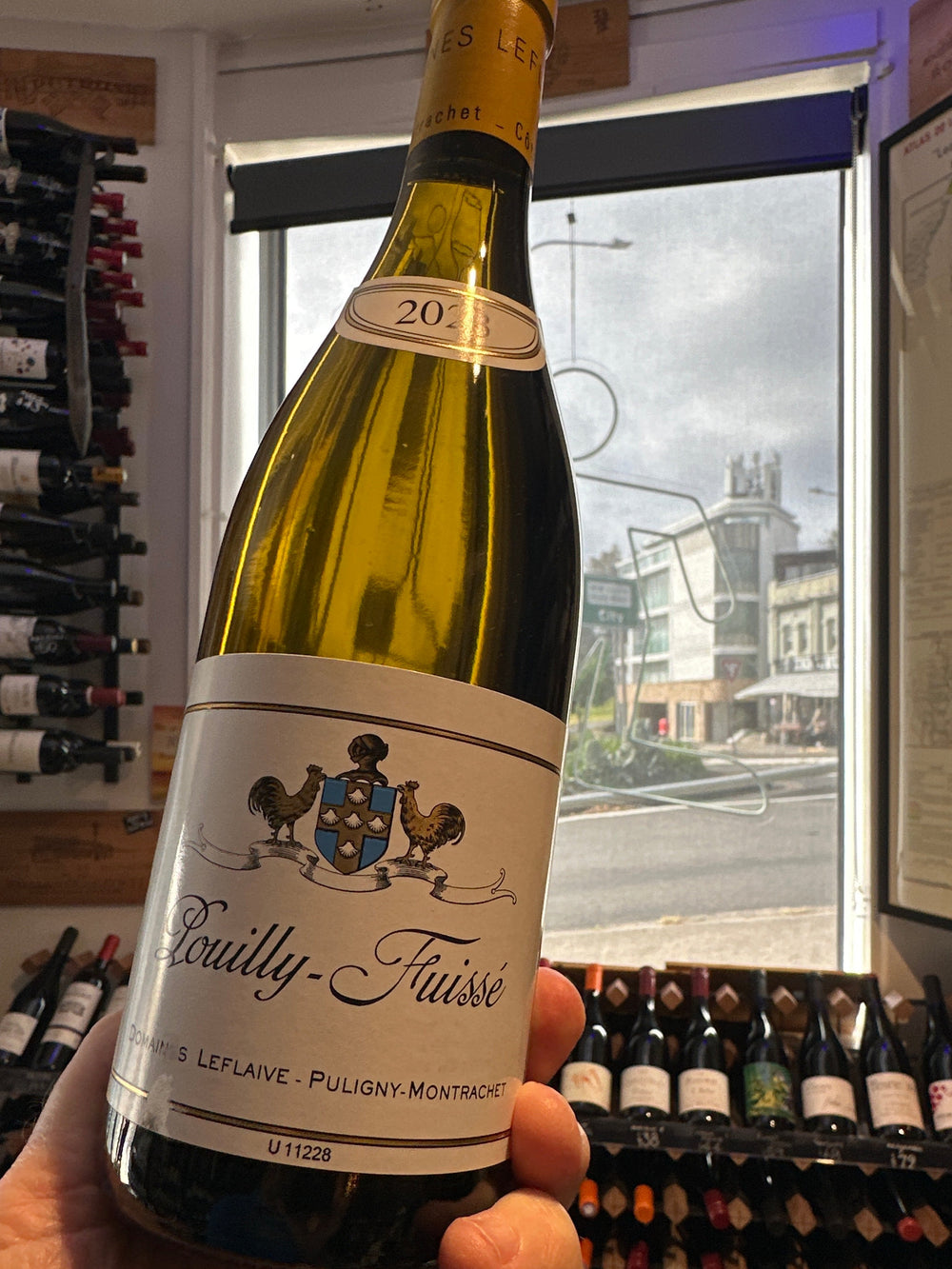
Domaine Leflaive Pouilly Fuisse 2023
The Wine
Mixture of Chardonnay vines planted in 1960 & 2011 - grown on shallow calcareous clay located around the Roche de Solutre - 100% Malolactic - 25% in egg-cement and 75% in oak barrels (15% new) - 12 months in oak casks, 20% new, then 6 months in small, stainless-steel tanks. Focused and laser like with attractive detail, subtle richness and persistence. Do not serve too cold, drinking well now but will add some additional layers with cellar time.
The result is a 2023 vintage with remarkable balance, structure, and excellent concentration. When well made, a Pouilly-Fuissé Village can come close to a Premier Cru. And while already excellent when young, it has the potential to become truly exceptional after seven to eight years of cellaring. Domaine Leflaive
91 Pts Allen Meadows, Burghound 'A markedly more floral-suffused nose reflects notes of lemon zest, spice and the essence of pear. There is fine volume and intensity to the generous yet beautifully defined medium-bodied flavors that deliver excellent length on the very dry but not really austere finale. Note that this fine effort is sufficiently compact to repay 5 to 8 years of keeping. Drink (from) 2029+'
The Details
Variety - Chardonnay
Country - France
Region - Burgundy
Sub Region - Macon
Extra - Cork
Year - 2023
Volume - 750ml
About the Wine Maker 
Domaine Leflaive is the most famous estate in Puligny-Montrachet. After the untimely death of Anne-Claude Leflaive in April 2015, the estate is now being managed by Brice de la Morandiere with the winemaking under the control of Eric Remy (in succession to Pierre Morey who retired in 2008).
Leflaives have been extant in Puligny since 1717 but the real founder of the domaine was Joseph (1870-1953) who was succeeded by two of his sons, Vincent and Jo. However, it was under the stewardship of Anne-Claude between 1990 and 2015 that the domaine became a leader in Burgundy’s biodynamic movement, the whole property being converted in 1997.
The domaine has expanded into the Maconnais in 2004, with 20 hectares in Mâcon-Verzé and Solutré-Pouilly.


